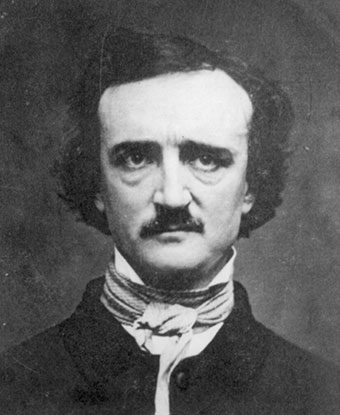How to write a book press release: Examples, templates & more
Everything you need to know to publish a new book press release.
Congratulations, you or your client wrote a book! Now you never have to write anything else, ever again. Everyone will simply hand you money, and your work here is done.
Just kidding: now you have to write a press release for the book.
"How ridiculous!" you may be screaming at your computer screen. "Edgar Allen Poe never had to write a press release for The Tell-Tale Heart. Why should I?"
And while that is true, the competition for new literature in 1843 was much less fierce.
These days? Approximately four million books are published each year.
So yeah, your book needs a press release.

A book press release isn’t just a nice-to-have – it’s a strategic way to grab media attention in a crowded market.
Here’s the key: highlight what makes the book unique and worth a journalist’s (or book reviewer's, or critic's) time.
As with all press releases, keep it concise, compelling, and packed with the essential details they need to share your story. Even if your PR strategy leans heavily on social media, an effective press release serves as a central hub of information for journalists, fans, and potential partners.
Ideally, you’ll want to send it two to three months before the book's release date to give journalists time to plan coverage. This is especially important for long-lead publications like magazines. For shorter timelines, focus on digital media and local outlets.
Also, consider sending updates closer to the launch or for milestones like awards, book launch events, or reviews.
Don’t wait until the book is out – create buzz early and keep the momentum going. A well-timed press release can maximize visibility and ensure your book gets the attention it deserves.
Alright, onto the press release. What key elements should your press release include and how should you format your press release?
What makes this book more newsworthy and compelling than all the other books being released? Identify this hook and write the release around it.
A journalist should never be wondering, "is this news?" because you'll answer that question for them throughout the press release. Make it clear why this book isn't just a product to be sold but a news story to compel the journalists' readers.
Journalists need stories. They aren't there to sell the book for you.
Having trouble thinking up a pithy one-liner to sell your story? Read the first few chapters of Save the Cat for many, many tips and examples.
You shouldn't judge a book by its cover, but you should judge a book by its title. And its cover. Actually, judge a book by the whole book. Who am I to gatekeep how you judge things?
Anyway, a good title is key to hooking your target audience – that goes doubly for your press release headline.
Unless the author is Maya Angelou or Stephen King, odds are potential readers are going to want a summary of the book. (And if this is in fact Stephen King reading this, hello, I love you.)
Include a one-liner summary of your book, and follow it up with a (slightly) longer summary. A great book summary differentiates a book from the rest in the genre but stays ambiguous enough to avoid spoilers.
Don't be Patrick Rothfuss.
Don't be George R.R. Martin.
Don't be either of their agents.
Don't make people wait 45 business years to read this book.
Including a release date in your book press release is crucial to getting media coverage. Journalistic timing is a complicated thing, and you don't want them running a story about a novel that isn't set to be released until 2045 (this is directed to Patrick Rothfuss specifically).
Give the media a solid date so they can work your book into their editorial calendar in a timeframe that makes sense.

Obviously, this should only be included if the author isn't a fantastically mysterious antisocial shut-in who only sees the light of day to snatch the Uber Eats delivery off the porch under a shroud of darkness.
Barring that, many book authors will have a series of dates where their fans can come and have a deliciously awkward interaction with their favorite author. A great book press release will include these dates.
This is your opportunity to let the author shine. Give key information that journalists can use to cover the author, but keep the info relevant and interesting. Information about previous books, accolades, and social links in the author bio are also great.
Some questions to ask when writing this section:
- What makes the author uniquely qualified to write this book?
- How can the author relate to the audience in a personal way?
- Does the author have a specific authority on the topic that makes this book more distinctly readable than another author who also writes on this topic?
- Can you include a fun, sassy fact that makes the author more engaging to their target audience?
A centralized place for journalists to download high-quality images of the book is just good sense. They're more likely to cover a compelling story when they don't have to hunt down the necessary elements and assets.
Prezly is fantastic for showcasing images because assets can be easily downloaded at their original high resolution – without cluttering up journalists' inboxes with massive image files.
Create a free press release with PrezlyWho is carrying the book? Where can people find the new book? Will it be available in physical stores, or online only?
Links to all the best places to order the book reduce the friction between a customer's interest and their actually making a purchase.
These days you can get software for everything, and that includes AI tools, pitching tools as well as PR distribution services. Take advantage of them.
Real coverage at a fraction of the cost
Prezly’s PR CRM, outreach tool, newsroom creator and analytics earn you authentic media coverage by putting journalist relationships first. Starting at $90/month.

This example from a PR agency representing an author includes all the information for the book launch as well as the author photo and book cover.

Be inspired by great press release examples announcing events, music, video games, sports, tech products, non-profit initiatives, beauty and more.
It's best to follow a standard press release format when drafting your news release:
[Attention-grabbing headline]: [Compelling hook about the book, e.g., "Award-Winning Author Launches Gripping New Thriller"]
[Subheadline]: [Optional: A concise, intriguing statement about the book]
[Body]:
For Immediate Release
[City, State] — [Author Name] announces the release of [Book Title], a [genre] that [key selling point or unique aspect]. Perfect for fans of [similar authors/genres], this book offers [main takeaway or value proposition].
[Author biography]
Available [release date] wherever books are sold.
[Call to Action]
Learn more at [website or link] or request a review copy via [contact email].
Contact details: [Name, Email address, Phone]
Thursday, between 10am and 2pm.
The best time to send a press release varies, but this is the general consensus.
If the book press release is just a PDF that you occasionally email to people, you're missing out. A press release doesn't have to be just a one-time bonus for your book brand. Journalists, bloggers, and reviewers don't only include newly published books in their publications and may come across your PR months or even years after the book has been released. And you don't want a professional journalist scouring your Goodreads or Amazon listing for crumbs of information.
A press release should always be housed online for the following very good reasons:
- Websites can be optimized for press release SEO, meaning your PR can be found by people searching for a book just like yours
- A website can be sent as a link for distribution but in such a way that your recipients' inboxes aren't clogged with your PR assets
- It's professional and flexible
- If you need to update any information, your contacts don't have a bunch of out-of-date PDFs full of misinformation floating around
Let's look at some great newsroom examples and what makes them work:
Need more convincing? Find out why creating an online press kit for your book release is a solid idea.
Alright, now that you've written the best book press release in the world, how are people going to see it?
You could print copies and tape them to electric poles around your city. While this is a whimsical and adorable idea, odds are it is an ineffective strategy if you're hoping that people outside of a 2-mile radius will purchase said literary masterpiece.
You could also buy a book publishing PR distribution list and mass e-mail a bunch of people, but this would also be a largely inefficient strategy.
Why is buying a book press release media list a bad idea?
- Like pretty much all PR media databases you can purchase, chances are they're terribly outdated
- Pretty much everyone and their aunt try to shortcut the process and buy media lists, so competition to get the attention of anyone on those lists is sky high
- Many journalists don't want to be on PR lists and will disregard cold-approach messages
You are better off emailing a targeted niche audience of 20–30 highly curated journalists and publications with personalized pitches, than 200–300 generic cold emails that get thrown in the spam bin.
This is true for both self-published authors and agents: few people ever build a good, working relationship with the media by with spamming them generic pitches.
We have a whole guide on building better media lists if you'd like to learn more about the art of creating a fantastic book release distribution list.
Now that you know how to write a fantastic book press release, where to host it, and how to best distribute it, you're ready for your bestseller to hit shelves.
And now you never have to write anything ever again.
See if Prezly's press release software is a great fit for your book PR by trying our totally free 14-day trial. 👇
Prezly – software for modern PR teams
Write & publish brand stories in an online newsroom
Send email campaigns, pitches & newsletters
Manage all your contacts in a single CRM, with easy import & export
Measure performance with analytics & built-in media monitoring

For your continued reading, we recommend that you check out:
Ready to start growing your media reach?
With Prezly you can publish press releases online, and share them directly with journalists. 14-day free trial, no credit card required.

